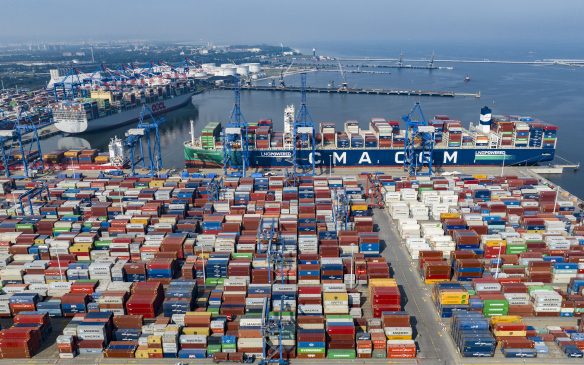Security reasons means a ban on photographing critical infrastructure since 17 April

Since 17 April 2025 there has been a ban on photographing selected areas and buildings of the critical infrastructure. This is the result of a new regulation issued by the Minister of National Defence, which imposes stricter rules on image recording in places of strategic importance for national security.
The goal is to prevent and protect key infrastructure elements which, in an era of growing hybrid and cyber threats, may become the target of sabotage or espionage.
‘Threats to critical infrastructure are no longer just theory. Experience to date shows that seemingly harmless information, such as photos of gates or port equipment, can be used to plan acts of sabotage’, comments Arkadiusz Strządała from the Security Management Department of the Port of Gdańsk Authority SA.
As part of the introduced changes, special information boards with a symbol prohibiting photography are to be placed around the Port of Gdańsk. The signs will appear on fences, at critical points and on buildings – places where taking photos may lead to the potential misuse of them. Particular attention has been paid to the entrance gates and areas near the infrastructure of strategic importance, such as terminals, communication systems and cargo handling equipment.
It is important to note that the ban on photographing a given building shall apply from the moment the information boards appear in the area.
ZMPG S.A. has established a procedure for people who for justified reasons, such as journalism, need to take photographs in the prohibited area. In such cases, it will be necessary to submit a request for permission, which must include the purpose, place and date of photography, as well as the personal details of the individuals involved, as specified in the regulation.
The decision is made by the Security Management Department. Please note that permission may not be granted if the requested activity is deemed to pose a risk.
The photography ban requires enforcement by law enforcement agencies. Violation of the ban may result in legal consequences, so we ask visitors to the port area to behave responsibly and be aware of the potential threats resulting from violation of the rules.
‘This is not an attempt to restrict civil liberties, but a rational response to the need to protect buildings that are important for the functioning of the country’, adds Arkadiusz Strządała.



